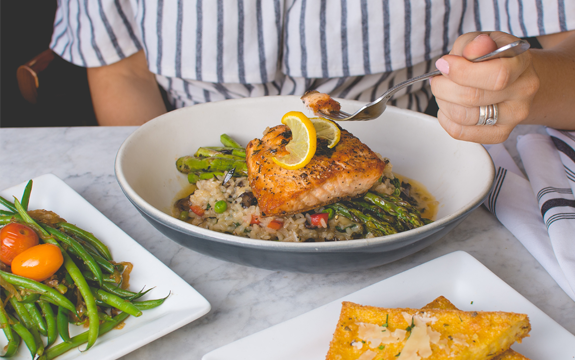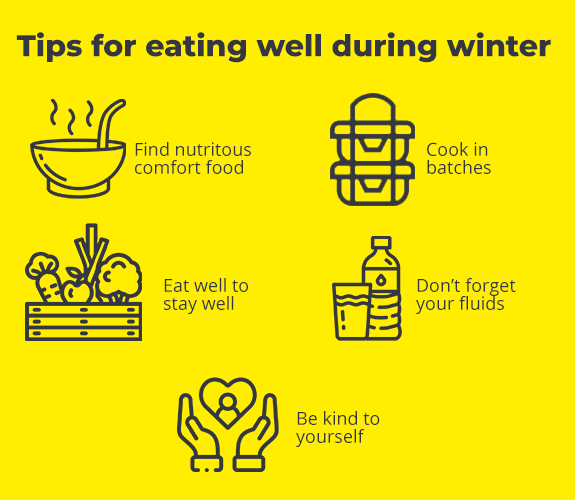
Eating healthy, nutritious food does not need to be tasteless, boring or difficult
Eating well during the winter months doesn’t have to be difficult, says Lecturer in Dietetics, Georgina Latimer. It can be easy and fun to make tasty winter warming meals, and it does not have to cost more to eat well.
“It helps to be organised and putting some time into planning your meals is time well spent,” she says.
Eating a wide range of nutritious foods is essential for our physical and mental wellbeing, however, this need not be tasteless, boring or difficult. Try to find a variety of foods you enjoy that are tasty and come from the five core food groups:
- grains (breads & cereals);
- vegetables;
- fruits;
- dairy and alternatives; and
- animal and vegetarian protein foods (meats & alternatives)
Here are Ms Latimer’s five tips for eating healthy during the colder winter months:

Find nutritious foods that have the comfort factor
There are plenty of warming, comfort foods that are very nutritious – soups, stews, curries, casseroles and stir-fries all fit the bill. They are warm, hearty and can have a wide range of ingredients including many different vegetables, from pumpkin to beans, celery, carrots, and many others, the list is endless!
Here are some of my favourite winter warmer recipes:
- Chicken and mushroom risotto
- Spanish Chickpeas with tomato and spinach
- Tip: try this with some rice or crusty bread
Cook your meals in batches
Cooking in batches can reduce your workload, plus many of the warm, hearty meals we look for in winter are well-suited for batch cooking.
So, get inspired and plan several different meals over a fortnight or a month that you can make in bulk. Putting some away in smaller amounts means you always have something on standby and never get tired of the same thing. You can fridge for a few days or freeze, to reheat as needed. Most meals with a liquid base will freeze and reheat well.
Eat well to stay well
There is no ‘superfood’ that will improve your immune system, however, a diet rich in vitamins, minerals, fibre and antioxidants will help your body work at its absolute best, giving you the best chance to feel and stay well. So, skip the superfood claims and only take supplements if advised by a doctor or dietitian. Stick with eating a wide-range of foods from all five food groups and lots of colours.
Don’t forget your fluids
As the weather gets colder, it can be easy to forget we still need to keep our fluids up. Keep up your water intake, and if you want something warmer – try herbal teas or warm water with lemon to make sure you don’t unintentionally up your caffeine intake during the colder months.
Be kind to yourself
As much as eating a variety of nutritious foods is important for our health, we have to keep in mind that we’re not aiming for ‘perfect diets’ and sometimes food is stressful for lots of reasons. We’re making our way through COIVD-19 and winter, embracing a ‘new normal’ all while trying to keep some kind of balance in our lives. Be kind to yourself and take the pressure off a bit. Find healthy foods you enjoy and avoid being super strict about it – all food has its place. Having a good relationship with ourselves, our bodies and our food is something to nurture, and self-kindness is a good place to start
Helpful resources
Accredited Practising Dietitians (APDs) are your go-to nutrition and dietetic professionals. Head over to the Dietitians Australia website to find an APD near you and for more smart eating tips.







